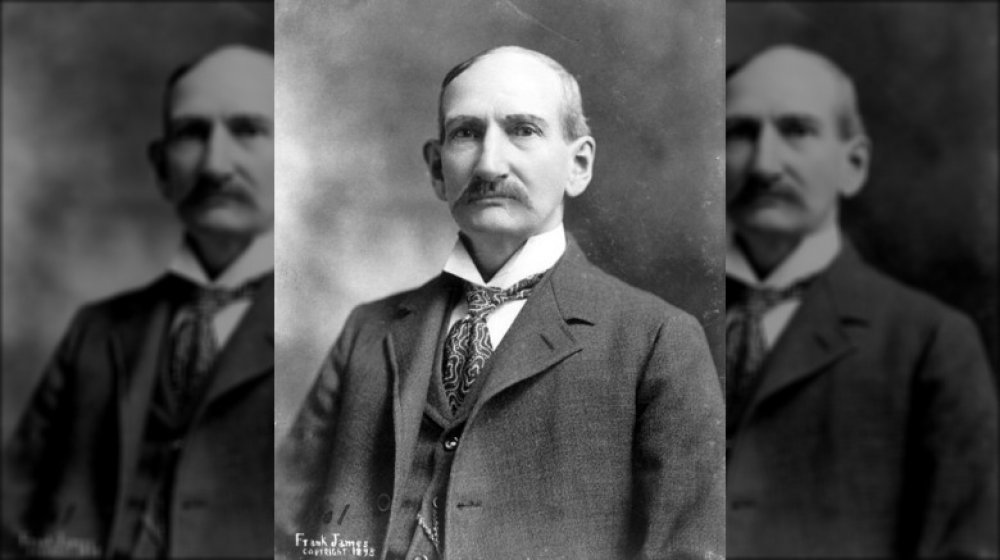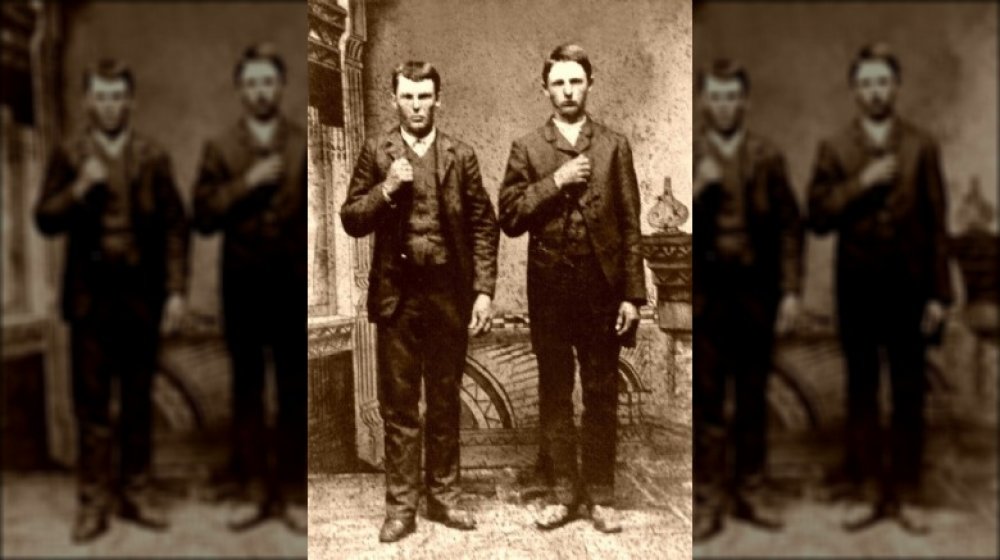The Untold Story Of Jesse's Brother, Frank James
Virgil was Wyatt Earp's older brother, but it's Wyatt who gets all the attention these days. The same argument could be made for Jesse and Frank James.
Frank was Jesse's senior by four years, born Alexander Franklin James on January 10, 1843. As the State Historical Society of Missouri tells us, when the American Civil War broke out, Frank enlisted to fight for the Confederacy. He was captured by Federal forces, took the oath of allegiance to the United States and returned home. He must have had his fingers crossed behind his back, because before long he was riding with some of the most brutal guerilla bands of all time, Quantrill's Raiders, as well as Bloody Bill Anderson. James was among those responsible for the sacking and destruction of Lawrenceville, Kansas, in 1863, including the deaths of 200 mostly unarmed civilians.
After the war he returned home to Missouri, but before long started riding the outlaw trail with his brother, Jesse, and with their cousins, the Younger brothers. There were robberies — trains and banks — and needless, cold-blooded murders along the way. Legends grew up that the James Boys were just an American version of Robin Hood, carrying on the good fight against Yankee oppression, robbing from the rich to give to the poor, defending kith and kin in the destitute days following the War Between the States.
Jesse and Frank: keeping the business in the family
The fact is that there's nothing to suggest Frank and his brother spent their money on much of anything but fast horses, gambling, prostitutes, and the occasional assistance to family members. No doubt fierce politics played a part in what they did — guerilla warfare had been a part of Frank's life for far too long. But mostly, money. After the botched attempt to rob a bank in Northfield, Minnesota, left the gang shot to pieces, Frank went to ground. When Jesse was shot in the back of his head by a nascent gang member, Frank must have thought things over. In what Historynet calls a calculated risk, he surrendered to the governor of Missouri, giving up his gun belt with the words, "I want to hand over to you that which no living man except myself has been permitted to touch, since 1861." Which was grossly inaccurate, since the weapon in question was an 1875 Remington. Perhaps it was the thought that counted.
Frank was tried twice, for a train robbery in Missouri and for another robbery in Alabama, and was acquitted both times. Once free, he worked at various menial jobs, and even put together a traveling Wild West show with cousin Cole Younger, according to Johnny D. Boggs, writing in True West Magazine. Frank James died at the James family farm in Missouri at the age of 72.

